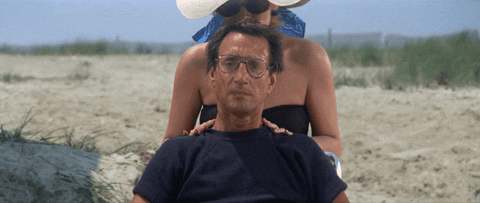What do flashbacks feel like?

'Flashbacks' are probably the most well-known symptom of Post Traumatic Stress Disorder (PTSD) and Complex Post Traumatic Stress Disorder (CPTSD).
But what are they? PTSD UK describes flashbacks as "involuntary, intense and often distressing memories of the traumatic event that can be triggered by certain stimuli."
They've also got a clear and detailed explanation of what causes flashbacks on their website, if you'd like to know more.
In this post I wanted to try and explain what flashbacks actually feel like, or at least what they feel like for me. Happily I don't often have flashbacks any more, and when I do they're generally not very intense. But for many years I struggled with them almost constantly.
I wanted to write this post because when people make jokes about being triggered, I wish they understood what it's actually like. But also because, as I've said before, trauma is weird and I'm kind of fascinated by it.
Finding words for the wordless
When I try and describe how my flashbacks feel I keeping sliding into poetry. Metaphors crowd in and run away with me, until all I have is a jumble of images, such as:
- stepping on a trapdoor
- an elevator in freefall
- a dolly zoom (like the famous one in Jaws)
- a parallel dimension where everything seems the same but nothing can be trusted
- an enormous wave, seen half a second before it hits you
- wandering underwater, looking for the exit
- surprise! your brain is pudding and your heart is full of gravel.

I'm sure I'll come back to some of these and try to organise them into something more meaningful, but perhaps you're getting a picture already.
Here are two articles from The Mighty, where people have described what their flashbacks feel like. (Please proceed with caution, as they also talk about the events which caused the trauma.)
It probably isn't like it is in the movies
Our typical idea of flashbacks is shaped so much by film and TV representations from which you might expect it to be like a complete immersion virtual reality experience.
I don't know if people do experience flashbacks that way, but it's certainly not been like that for me. At most, I have had extremely vivid mental images appear, and occasionally sounds or scents. But they're fragments. It's the emotions which envelop me.
They can come on fast, or slowly
For me, there seem to be two distinct ways that I notice I am in a flashback: either very fast, sometimes with visual or sound distortion not unlike the dolly zoom, or a kind of muffling effect.
Or, very slow: after hours or even days of feeling weird I will gradually realise I have been triggered, and usually I can trace it back to a specific trigger, but not always.
I don't always know what is happening
This is one of the strangest things about it. You would think it would be immediately clear when you're in a flashback, given the intensity of the emotions involved.
But because of the way that traumatic memories are stored in the brain, you don't experience them the way you do your other memories; you experience them as if they are happening now. And if what you experience is overwhelming emotion without any images, words, or other details attached it can be horribly confusing.
Also, when you relive traumatic memories in this way your threat response is activated (you might know it as 'fight or flight') which effectively re-routes your attention towards those instinctive survival responses, and away from higher cognitive processes like reflecting on whether or not you are experiencing a flashback. It's remarkable, really, and also quite annoying.
If you'd like to know more about how trauma affects the brain and body, Meg-John Barker covers it in some great articles and a free ebook on their website.
There are some things you can do to help manage flashbacks
If you are experiencing flashbacks or other symptoms of PTSD I strongly recommend seeking the support of a qualified psychological professional with a trauma-informed approach, if that is at all available to you.
When that isn't available, there are still things you can do; things like developing a self care plan, practising grounding techniques, and building up informal sources of support. Here are a couple of resources I've found helpful:
- Mind - Self-care for PTSD
- Pete Walker - Managing emotional flashbacks (CW mentions child abuse)
Personally I also find content warnings very helpful. They allow me to choose if and when I want to engage with triggering material, and if I choose to do so, I can prepare myself. (I'm working on an FAQ about content warnings at the moment as there are very reasonable arguments for both using them or not, but there's a fair bit of pure guff too.)
This post was hard to write; I knew it would be, and I did a lot of pre-emptive self care to make sure I could do it safely. If you are writing about trauma, there are steps you can take to help avoid getting triggered and finding yourself in a flashback. I've got a series of posts all about self care when we write, and two workshops available on-demand.
Last wordless
I will always circle back to metaphor and imagery, because I think those are the best tools I have. (We explore metaphor and other techniques in the Tools For Writing Trauma workshop.)
When I saw singer songwriter Dodie's video for her song "Guiltless", I was stunned at how accurately it reflected my experience of being triggered. It even has the fast and slow types!
I have no idea if this is what Dodie set out to portray or what her personal experience is, but it resonated very deeply with me.





Member discussion